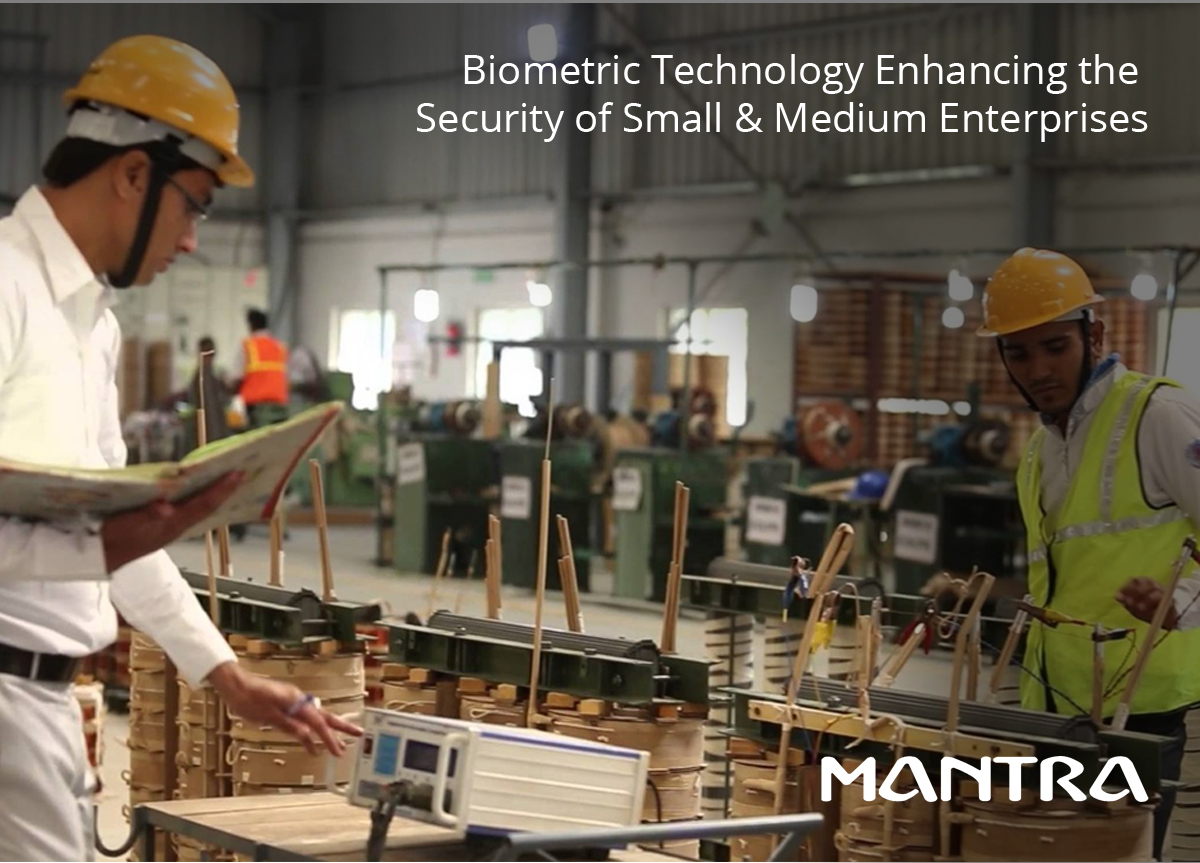
Biometric Technology Enhancing the Security of Small & Medium Enterprise
Biometric identification technology exists from the time of the 19th century as the policemen use to embark on the utilization of biometrics for identifying & tracing the culprits. Different nations are actively executing innovative biometric technology to a greater extent in multiple domains. That being so, the global biometrics market is probably going to reach USD 41.80 billion by the year 2025, according to the reports by Markets and Markets.
In the modern world, as the small and medium enterprises face challenging security concerns, it is imperative for them to adopt an ever-demanding biometric technological landscape to enhance their business security and ease the functioning of the business.
Biometrics is such an enrollment and verification tool that helps the SMEs not only in identifying a person accurately but also in carrying out multiple operations such as efficient monitoring of employee’s time-attendance, controlling the access of people and transforming the digital payment process.
Enhancing the Security of SME’s in the Indian Market
In the Indian economic market, small and medium-sized enterprises (commonly known as SMEs) play a crucial role in generating employment across the nation. However, in view of the fact that more than 68 per cent of Indian populace resides in the rural and semi-rural regions, the small or medium-sized businesses turn out to be a significant source of livelihood for them.
In the SME sector, India has managed to remain in the prominence as a considerable amount of business opportunities are prevailing in every single domain including the telecom, automobiles, healthcare, education, financial and banking services, real estate, etc.
Every business requires the right security solution to deal with contemporary threats, growing incidences of crime and urbanization. With the adaptation of advanced biometric systems and solutions, the SME market in India is turning towards the protection of their business with enhanced security.
1. Controlling the Access of People
In an increasingly challenging digital world, it becomes difficult for enterprises to safeguard confidential information and protect their assets. Nevertheless, thanks to biometric technology for facilitating enterprises with the most precise, reliable and convenient biometric access control devices to restrict unauthorized entries or access and enhance the security of assets as well as people.
Enacting biometric-based access control system does not only control the access of personnel to restricted areas but also makes sure that visitors acquire access to the required areas at the apparent time. SMEs also need to control the flow of access through their facilities by intensifying their enterprise security systems.
2. Revolutionizing Banking & Financial Services
The process of carrying out banking and financial services by SMEs is changing dramatically with the enactment of the next-generation biometric systems. For financial services, biometric technology proves to be a reliable option as the customer or client is successfully identified and authenticated before making the transaction or a payment.
Moreover, the small and medium enterprises aim to achieve a balance between security, convenience and transaction speed for efficiently carrying out the banking & financial services, particularly in the retail industry. Hat tip to biometrics for offering accuracy & reliability to the SMEs for efficiently carrying out the financial services.
3. Managing the Identities
Setting up biometric technology to manage the identities is as significant for the small & medium enterprises as for the larger enterprises in assuring business security. Hence, the process of identifying, authenticating and authorising individuals as well as protecting the resources of SMEs becomes a key regulatory requirement.
For safeguarding any business against cyber attack, biometric security systems shall be used to link an identifier with an individual’s identity & furthermore to enforce access rules across the business.
NFWILE ALBERT LIKANDO
Hello , am your Colleague you have called on 19 May 2023, Time you Called: 13h59 as you know we also hard communicated again on 12 May 2023, please i apologize on behalf of us on that missed called please I hope you arrange again a next call i was in Community Mobilization deep in Remote Areas.
Reply